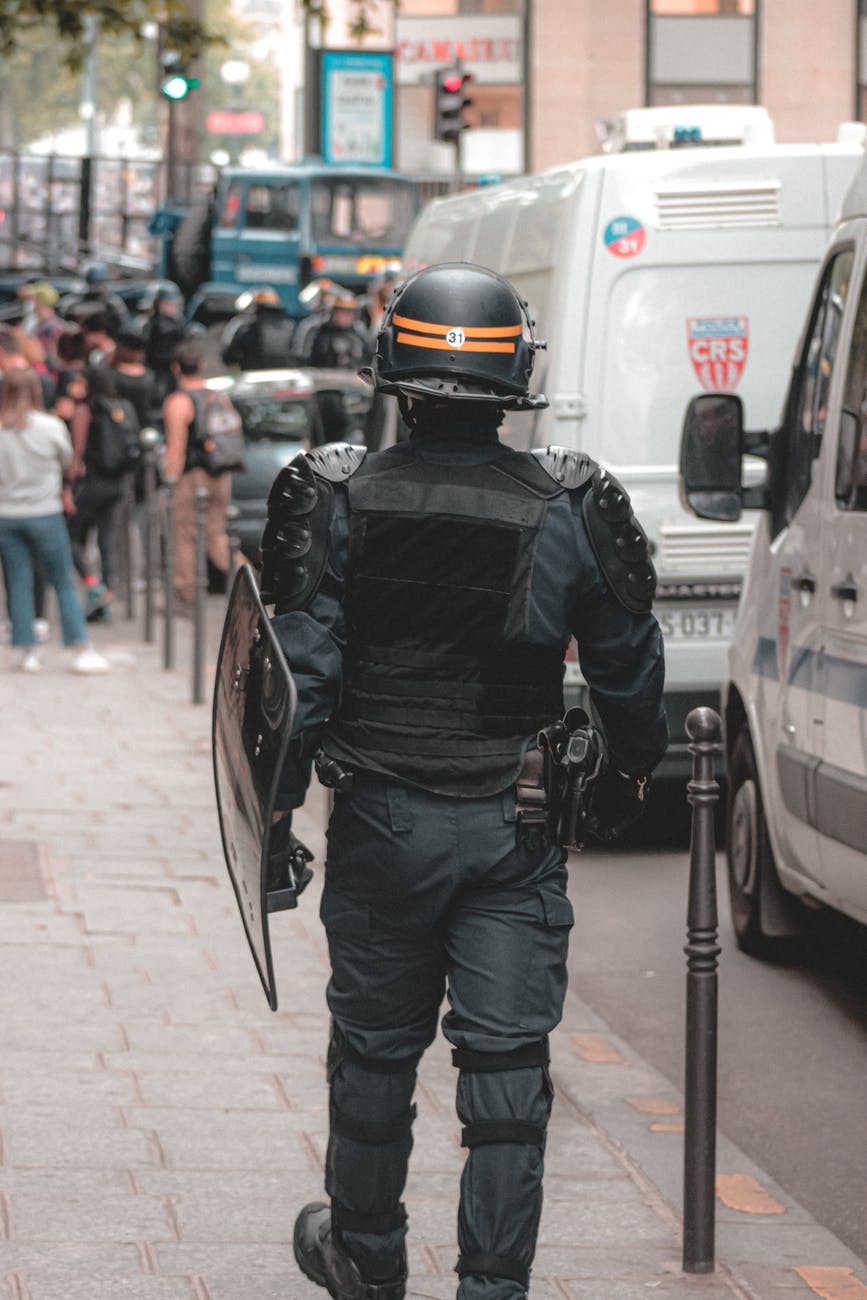1 December 2020

1. French Police
The French government has committed to withdraw and rewrite a controversial security law, following nationwide protests over police brutality last weekend. Article 24 of the Global Security Bill would purportedly have made it an offence to film and identify police officers online, with malicious intent.
Article 24 became the source of controversy after footage of four police officers beating a black music producer went viral on social media. Although advocates of the proposed law argue that it would not have prohibited the circulation of the footage of this incident, the law has, at the very least, fuelled a perception that the government is seeking to shield officers from public scrutiny when questions over the legitimacy and accountability of the French police are as vital as ever.
2. Magna Carta?
A number of small business owners have been subject to fines running into the tens of thousands of pounds for breaching the “covid regulations”, by continuing to operate during the lockdown and citing “Magna Carta” and “common law” as their legal justification. Of course, these sources confer no such immunity from the regulations, and The Secret Barrister has gone to the trouble of carefully dismantling the arguments, which amount to nothing more than conspiracy theories furnished with legalese. Although the arguments probably won’t provoke much interest from doctrinal lawyers, it is a curious sociological phenomenon, perhaps symptomatic of trust erosion in established institutions and sources of knowledge.
3. PC Harper Sentencing Referral
The Court of Appeal has heard arguments in a challenge to the to the sentences of the killers of PC Andrew Harper. The Attorney General, Rt Hon Suella Braverman QC MP, referred the sentences of Henry Long, Albert Bowers and Jessie Cole to the Court of Appeal, arguing that the sentences were unduly lenient. The Attorney General’s referral and appearance at the Court of Appeal carry a whiff of political opportunism about them. No one would disagree with the Attorney General’s characterisation of these crimes as horrific, but the jury convicted the defendants of manslaughter, not murder. The trial judge, Mr Justice Edis, recognised and afforded weight to the ‘very high culpability’ of the defendants and the other aggravating factors in the case. His published sentencing remarks are worth a read. A(nother) clash between the government and the courts could be imminent.
4. Sentencing Act 2020
The Sentencing Act 2020 came into force today. It is the product of the Law Commission’s Sentencing Code project, which undertook the mammoth task of bringing together disparate (and often archaic) sources of sentencing law to assist judges and legal professionals in identifying and applying the law, reduce the risk of error and enhance the transparency of the sentencing process for the general public. Overview here.